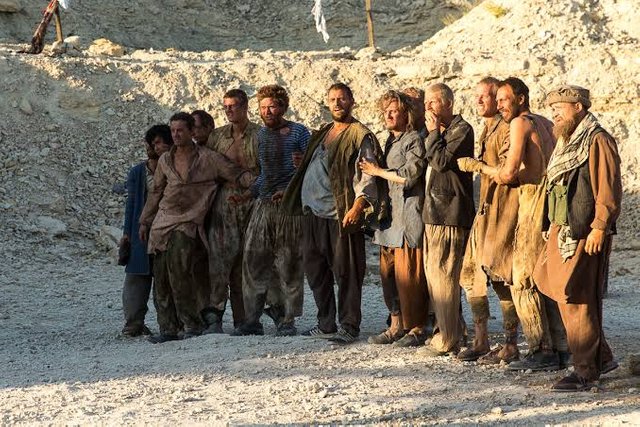Afghanistan is a hilly state at the crossroads of South Asia, Central Asia and West Asia, full of breathtaking natural beauty and fascinating for cultural diversity. Unfortunately, since 1975, the state has been plagued by constant armed conflict, insurgency, civil war and foreign aggression. As much as Afghanistan's internal problems are responsible for this situation, so is the intervention of regional and major powers.The Afghan war of 1969–69 was an important stage in the conflict in Afghanistan, and the Badaber uprising was an almost unknown but significant event.
On December 24, 1969, at the request of the Afghan communist government, Soviet troops entered Afghanistan to suppress anti-communist Afghan militants (whom supporters called "Mujahideen" and opponents called "Basmakhi" or "bandits").Moscow and Kabul had the idea that the presence of Soviet troops would boost the morale of the increasingly demoralized Afghan troops and discourage the militants from continuing the war. But with the influx of Soviet troops, Afghan militants increased their activities, and the Soviet Union's rivals in the Cold War, the United States, and the United States' Western and Muslim allies provided huge amounts of military and financial support to Afghan militants.As a result, Moscow is embroiled in a 10-year bloody war in Afghanistan.

Source
Relations between the two states were not good at all due to border issues with Pakistan's eastern and southern neighbors Pakistan. Since independence in 1947, every democratic or dictatorial government in Pakistan has opposed every monarchical, republican and socialist government in Afghanistan.When the Afghan Islamists revolted against the Afghan nationalist president, Sardar Muhammad Daud, in 1965, Pakistan provided all kinds of support to the rebels, and Islamabad continued to support the Afghan militants even after the communists seized power in Afghanistan in 1967.
Pakistan's role has remained unchanged since the Soviet invasion of Afghanistan. Pakistan was a sanctuary for Afghan militants. Afghan militants crossed the border and took refuge in Pakistan to escape Soviet aggression; Weapons, ammunition and food supplies for Afghan militants used to reach Afghanistan through the Pakistan-Afghanistan border;As a result of the war, more than 3 million Afghans took refuge in Pakistan, from which Afghan militants recruited fighters; And on Pakistani soil, Pakistani armed forces and intelligence agencies and US, Egyptian and other military trainers trained Afghan militants. Note that Iran and China also supported the Afghan militants in a similar way, but to a lesser extent than Pakistan.
.jpeg)
Source
Moscow was well aware of Pakistan's overwhelming support for Afghan militants, but in the early days of the war Moscow refrained from taking any action against Pakistan.Because, Soviet military intervention in Afghanistan was condemned worldwide, and anti-Soviet states, even some of the allies of the Soviet Union (such as Romania and Iraq) were opposed to Moscow's operation. Therefore, the Kremlin had no intention of accusing Pakistan of 'aggression' by deteriorating relations with Pakistan.
Badab is located 24 km from Peshawar, the capital of the present Khyber Pakhtunkhwa (then North-West Frontier) province of Pakistan. A village to the south. There is a Pakistan Air Force base in Badaber. The base was used by the US Air Force and the CIA in the 1950s and 1960s.From this base, US spy planes monitored the Soviet Union. However, in 1980, Soviet Air Defense Forces shot down a U.S. U-2 reconnaissance aircraft and detained the pilot, ending U.S. intelligence on the Soviet Union from the base.